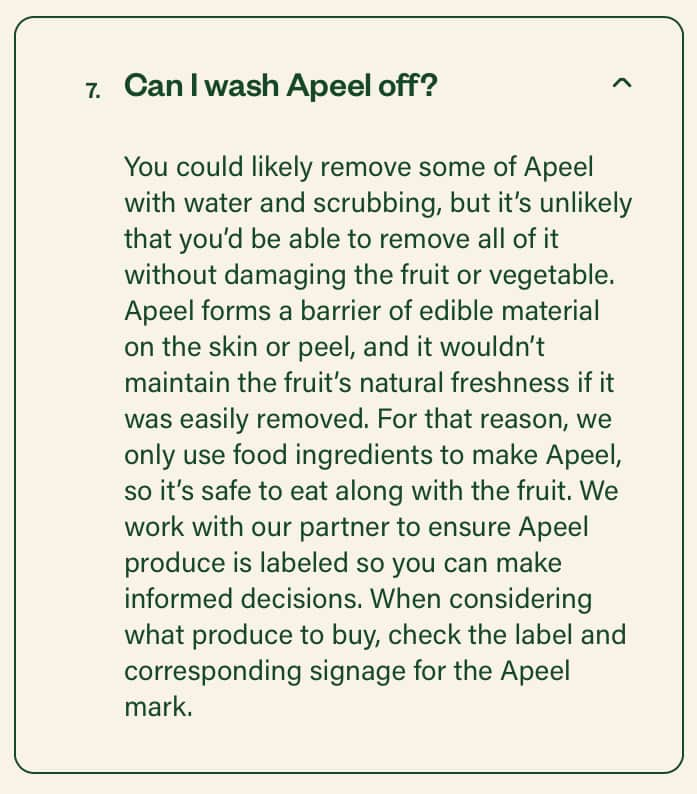Well, that’s horrific
From their own website:
I don’t want my food coated with a chemical I can’t wash off, even if the manufacturers say it’s safe
Manufacturers have been known to lie, and they can’t know the long term affects of eating this stuff
So, it’s made from fruit and vegetables, exactly how are these fruit and vegetables grown? Are they grown organically? I doubt it. More likely with chemical fertilisers and pesticides that they are now going to concentrate and spray on my food in a solution I can’t wash off
So buying organic isn’t a guarantee 
They say all foods coated with it will be labelled but can we trust them? And can we trust our own government who want to reduce food labelling to appease US food producers
It looks as if some of the brands to avoid if you don’t want to consume Apeel are AM Fresh Group, Alben Fruit, Nature’s Pride, Worldwide Fruit, Eatme and Robinson’s Freshbut that’s not going to be an exhaustive list and I don’t trust it will be properly labelled
It’s not just Asdas, Tescos are having a go to
I think we’re being conned into accepting this new food additive without questioning by them boasting it’s “green” credentials, less waste, less plastic etc
But if food looks the same for ages, and doesn’t go off, how do we know how fresh it is?
Even if it looks good, fruit and veg lose their vitamins and nutritional value as they get older, so if they use this to sell us ancient fruit and veg, we’ll just be eating nutritionally valueless, but attractive looking, mush 
Good article here:
I’m off to check my Tescos lemons!


 )
)

